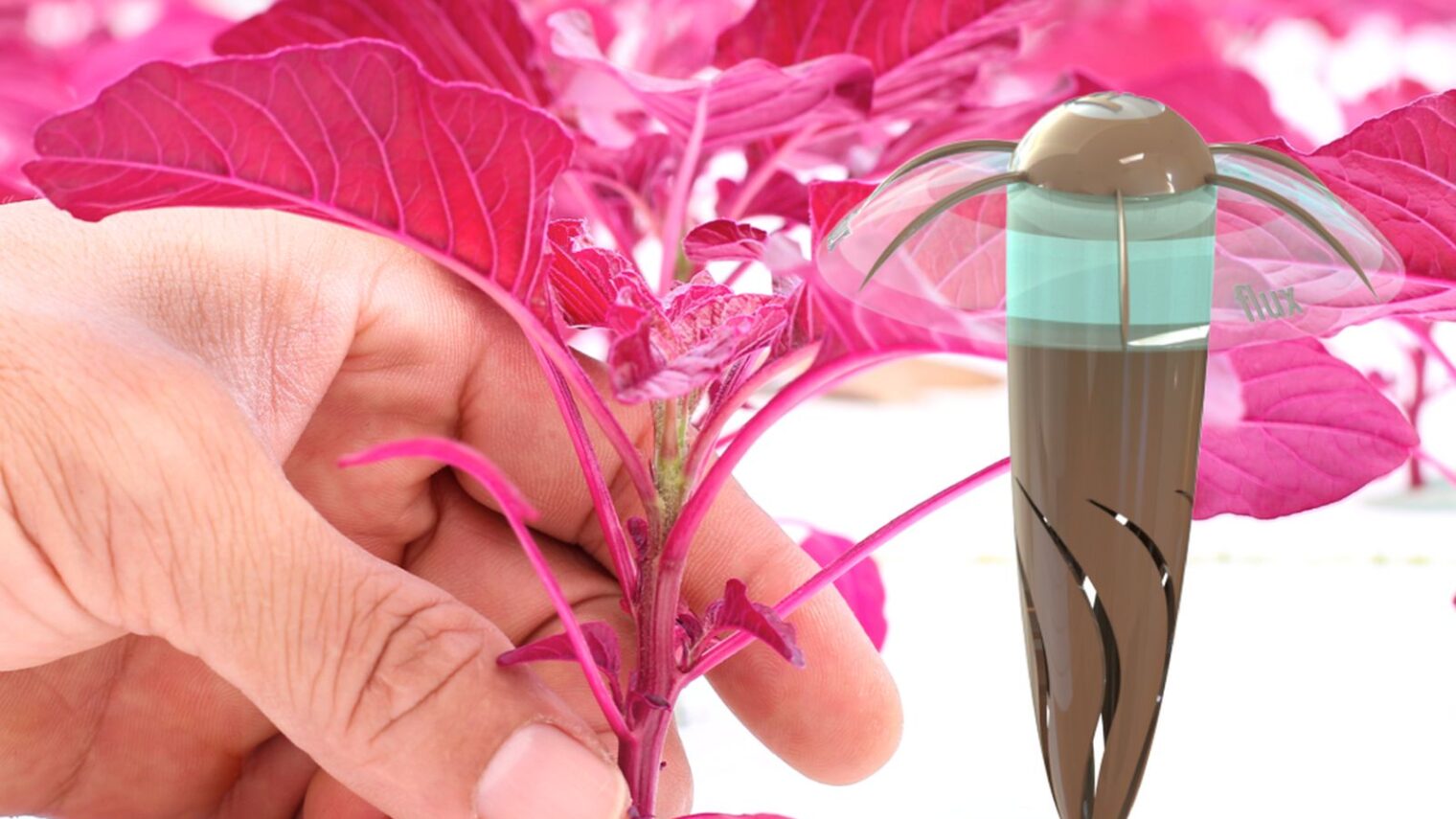Whether you’re growing berries in Brooklyn or kale in Karachi, a small device coming soon from an Israeli entrepreneur will help you grow it better on water, hydroponically.
“Our solution based on sensors and community lets individuals and smallholder farms access cutting-edge hydroponics technologies, until now available only to big industry,” says Karin Kloosterman, Jaffa-based CEO of Flux.
“By monitoring, automating and adjusting optimal conditions for your plants indoors or out, Flux makes the most of your investment, and elevates your plants’ potential. The tool, based on precision agriculture, can increase yields by 30 percent.”
Once Flux is mass-manufactured by the end of this year, consumers will be able to buy the patent-pending device through greenhouse builders to optimize their hydroponic crops – everything from cherry tomatoes and rare Japanese melons to medical cannabis.
“You just have to plunk it in the water reservoir and it starts monitoring your water chemistry and gives you automated alerts about what to adjust,” Kloosterman, a former writer for ISRAEL21c explains. The system is monitored and controlled from any smartphone or tablet.

“Instead of relying on charts, our device will give you specifics about nutrients and light and other parameters for optimum growth. You can even increase the vitamin content by 200% if you know how to do it. The second generation of the product will actually control these parameters for you.”
Until now, hydroponic farmers had to rely on pH test strips to monitor the balance of nutrients in the reservoir. Kloosterman says Flux is the first advanced product for providing more accurate, real-time data while connecting users.
Flux users will be able to share ideas and photos with one another when and if they choose to, but they’ll constantly be sharing sensor data passively, through the device. “Most of the sharing happens automatically, like with Waze,” she tells ISRAEL21c.
Incubating in the Big Apple
Flux is one of five Israeli companies currently in the midst of ICONYC’s first six-month accelerator program nurturing “smart” consumer and business products.
Kloosterman says the prototype is ready for manufacturing and she’s on the verge of closing the company’s first large investment to make that happen. Flux is registered in the United States but will maintain an R&D center in Israel. The device was developed by software and hardware engineers with experience in transferring Israeli plant science, medical and military know-how into consumer and industrial devices.
“We want to take a huge bite, create a new market and a new ecosystem for growing your own food no matter where you live,” says Kloosterman. “I’m focused on feeding people with fresh, high-quality food grown on rooftops, in school gardens, basements and even in restaurants. In developing countries, we could create cooperative hydroponic farms to benefit families and provide a source of income.”
She foresees other markets for Flux as well. “Teachers could use our device to teach chemistry, to teach about the food cycle, photosynthesis, building, physics and engineering. It answers a lot of big questions.”
Having grown up in Canada helping her Dutch grandfather tend his large organic garden, Kloosterman became aware of the problems inherent in conventional agriculture when she worked at a Swiss nonprofit, CABI, that develops natural methods of pest control to alleviate world hunger.
After moving to Israel and becoming a journalist and environmental blogger she noticed that the many Israeli ag-tech companies she featured were focused on business to business and on conventional agriculture.
“Advances in conventional agriculture aren’t feeding more people; there are about six global companies that control the world’s food chain,” she says. “I wanted to be part of a change, and I met up with some guys in aquaponics — growing food and fish together — and someone with tech experience from the army, and we became excited about doing something scalable.”
When growing her own crops hydroponically in Jaffa, she discovered it is challenging to calibrate water chemistry properly. “For people in cities, or people who travel frequently, who want to garden, it’s difficult. Something was needed for this very common lifestyle,” she says, “and we have to start growing food in our cities if we want to survive.”
During World War II, she notes, home “victory gardens” in the United States were responsible for 40% of all fresh produce. Home gardens have gotten popular once again, and urban community gardens even more so. In Tel Aviv, a Green in the City hydroponic-aquaponic community garden was started last year on the roof of the Dizengoff Center mall.
“We decided we need to collect data to make hydroponic farming really accurate, precise and efficient,” says Kloosterman. “The Israeli startup CropX just got a $9 million investment from Google, so you see a lot of energy in soil-based agriculture and we wanted to do something similar for controlled-environment agriculture.”
For more information, click here

















